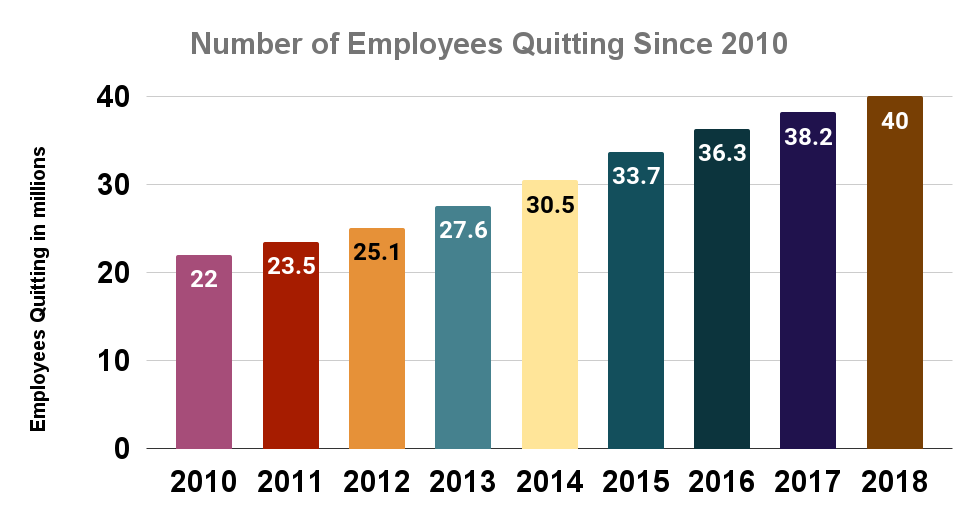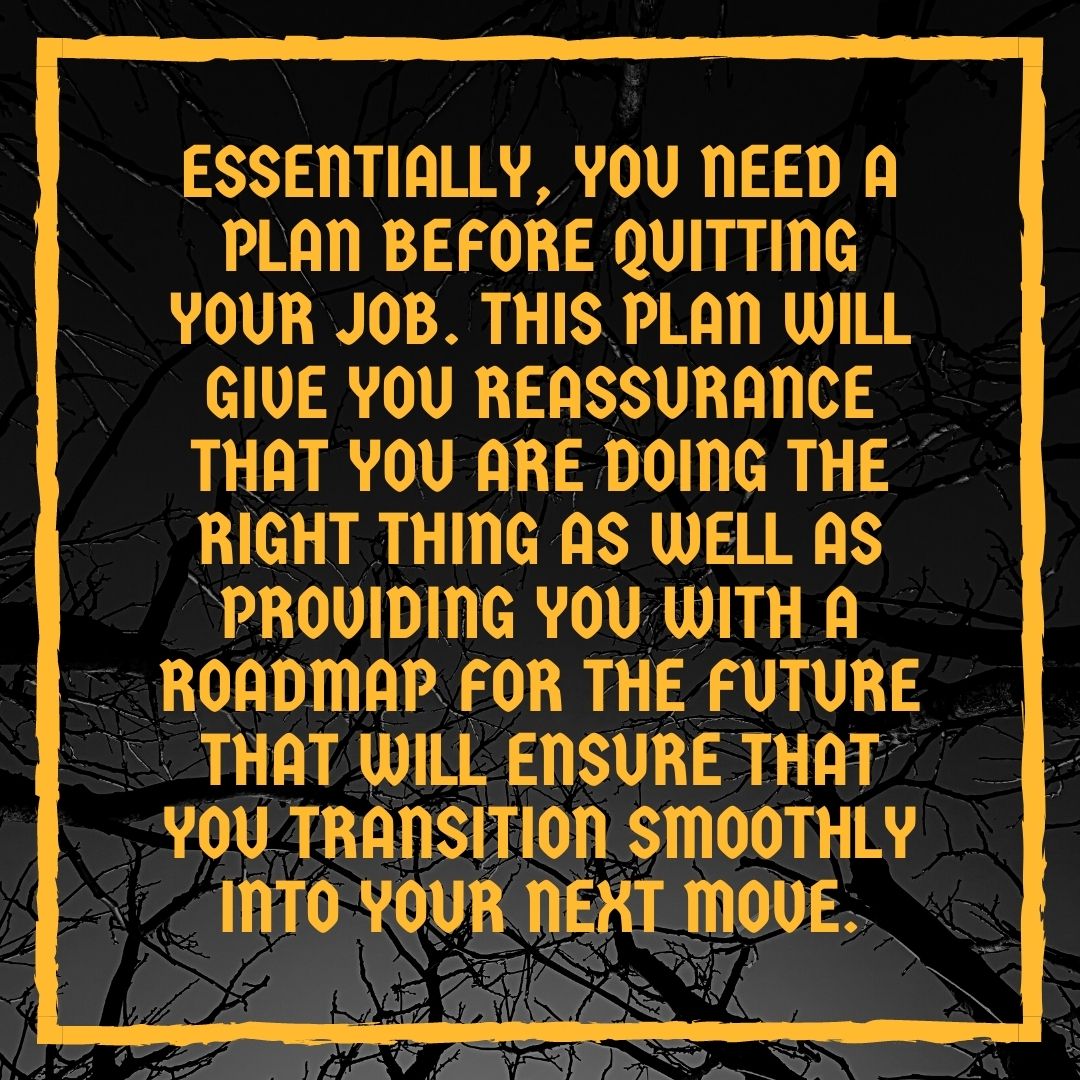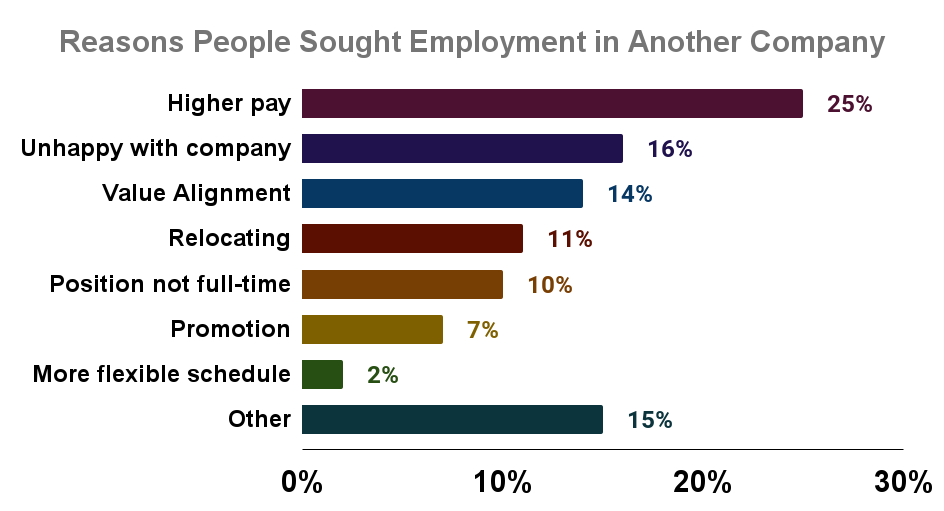What to Do When Quitting a Job – 17 Things to Do Before and After Quitting Your Job
WhatToGetMy Instructional Article

- It is perfectly normal to quit your job as shown by the millions that according to research by SHRM based on U.S. Department of Labor statistics, do it every year.
- You should, however, be sure that you do it for the right reasons and in a proper manner.
- This ensures that you have a smooth transition to life after you quit and that you will not regret your decision.
Quitting your job can be quite a serious decision as it can have an impact on the rest of your professional life. It is therefore important that you know what to do when quitting a job in order to ensure that you minimize any negative fallout and maximize potential benefits.
There are several reasons why you might feel the need to quit your job and the first thing you need to do is to weigh these against the after-effects of quitting. For instance, if you are quitting because you want higher pay, you need to consider the likelihood that you will get higher pay in another company.
Essentially, you need a plan before quitting your job. This plan will give you reassurance that you are doing the right thing as well as providing you with a roadmap for the future that will ensure that you transition smoothly into your next move.

After deciding to quit, you then need to behave in a manner that will guarantee that you move on peacefully from the company. We will talk about some of those things to do before resigning and then things to do before leaving a job after resigning that will ensure that peaceful move.
In addition to what to do when quitting a job, this article will also include some things to do after quitting your job so that you are well prepared for the next move you make.
Check out this related article on When to quit your job immediately.
12 Things to do before quitting your job.
1. Make sure you are making the right decision and be firm in it
As shown by the graph from Forbes below, there are several reasons why a person might want to quit their job.

You need to look at your reasons and be sure that you are making the right decision by quitting. You can do this by weighing the costs of those reasons against the benefits.
If the reasons you want to leave are things that can be negotiated with the company, try to do that first and only make the decision to leave if things don’t work out because you will then be sure that you tried your best to stay.
Remember, money should not be your only driver as there are other things to consider before quitting your job such as your peace of mind and your job preferences. You are also free to reach out to people whose opinions you trust with your reasoning so that they can give you a wider perspective.
After all this is done, if you make the decision to quit, be sure that you remain firm in this decision. Don’t waver – you have given this some thought and decided it was the best way so don’t let doubt cloud your mind.
2. Decide what type of job you would like
If you are unsure of what to do before quitting your job, this is definitely a good start, especially if you plan to leave your current job to go to another. You have your reasons for wanting to quit and it would be a shame if those reasons repeated themselves in your next job.
To avoid that, you need to think about what characteristics you would prefer your next job to have. Once you have that plan in your mind, you can then work towards finding that job. The logic behind this is simple, you can’t find what you want if you don’t know what you want.
Check out this related article on How to Figure Out What Makes You Happy.
3. Make a plan for after you quit
Something else that ranks high on the list of what to do before you quit your job is a plan. You are about to leave your job and regardless of whether you have another job lined up already, are still in the process of finding one, or don’t even plan on rejoining the job market, a plan is still needed.
This plan would include things like a budget to guide you through the transition. If you haven’t found another job yet but plan to, a budget is paramount because it can tell you how much time you can be on your own before you need to find a job. The plan should also look at government programs and alternatives that can replace things that your work was providing for you like health insurance.
Arguably the most important, however, is that the plan should include the strategies you plan to use to find your next job or if you have one already, how to be effective at it from day one.
4. Document your job responsibilities and achievements
Several job experts have mentioned that people find it difficult to remember what exactly they did in their jobs when they try documenting their roles after they have left their job. In giving advice on how to prepare to quit your job, therefore, they generally recommend that you document everything you do in your company before you quit.
Document the big and the small, the minor and the major, the skills you acquired, and the skills you imparted. When you are then using these in your resume, you can decide which to put that would be relevant to the application.
5. Update your resume and create job alerts
You shouldn’t wait till after resignation to start looking for another job if you plan to move to another job. Beef up your resume with your current achievements and skills and then based on your job preferences, create job alerts.
There are several recruiting websites out there that you can join including Linkedin. Input the details of the kind of job you are looking for and look through the matches it comes up with. Based on the plan you came up with, you can opt to find a job first before handing in your resignation, or you can simply set up the alerts, resign and then wait for potential matches.
6. Save what you can
Some jobs have a tendency of immediately denying an employee access to company resources as soon as they hand in their resignation, which sucks because there are important resources such as contacts and processes that the employee could take with them to be more effective at their next job.
To guard against this being done to you, look through your contract and other agreements with your employers to find out what you can and cannot take with you and then take those things that you can, before handing in your resignation.
7. Clean your company-issued devices
We know what happens when you quit your job; your company takes back all the devices they had given you for company work and rightfully so. What you need to avoid are embarrassing situations where your employer might find unbecoming things on these devices in the process of cleaning them.
These can damage your reputation and have a negative impact on you being able to get good references.
In order to avoid metaphorically (or literally) crying when leaving a job, therefore, wipe your company devices of all personal files before you submit your resignation. Delete personal emails and uninstall software that the company did not put there. Essentially, give the devices back the way you received them.
8. Offer your resignation according to company policy
Most companies have policies on what happens when you resign from a job including the procedure you should follow to effect the resignation. Look through these and abide by them when resigning.
This is important because it would protect you from any legal ramifications as well as contributing to a smooth transition that would increase your chances of maintaining professional relationships with the company.
Also, it is a norm to first tell your boss that you are planning to leave before anyone else as it would not look good if they heard it from someone else first instead of you. You could even do so with a gift.
9. Help with your role transition
One of the most considerate things to do when you quit your job is helping your former employers with training your replacement during the time you have left with them if you can.
Run them through the things you did for the company and the little tricks you developed to make your work easier and more effective. This will be helpful to both the company and your replacement who would probably appreciate the help and form a strong professional relationship with you.
10. Ask for recommendations
Thinking of what to do after you quit your job? Answer is – recommendations, recommendations, recommendations.
Recommendations are very helpful in the professional world and so you should snap up a couple before you leave. You can also meet with the relevant people who you would like recommendations from and simply inform them – with their agreement of course – that you will be listing them as references for future job posts.
11. Meet with HR
Meeting with your company’s HR personnel is also on the list of what to do when you quit your job because it helps you transition smoothly out of the company. Inquire from HR what processes you have to go through as well as what benefits should accrue to you.
Retirement accounts like the 401K should also be discussed so that you can see if you can transfer it to your new job or rather how you can keep contributing to it without having to close it.
12. Meet with Financial advisor
It is also important that you meet a financial advisor if you can as they would best explain to you what to do when you leave a job in terms of your finances and work benefits. They will also be of help in determining how to organize your finances as you settle into the job searching phase.
To make your departure more lighthearted, check out these activities at Funny things to do on your last day at work.
5 Things to do after quitting job
13. Give yourself time to recuperate
You’re free now and right at the top of the list of what to do after quitting job is to rest. Take a chill pill and unwind. This is important regardless of if you already have a job lined up or are yet to find one.
Taking time to recuperate allows your brain an opportunity to get ready for the next step. So go on, take a week or two off and watch some series, sports, take your dog to the park, whatever gives your brain calm, go for it. You will be more useful to your next employers if you are refreshed.
14. Update your resume to match jobs being applied for
You’ll be getting a lot of job adverts and what you’ll want to do is increase your chances of getting the ones you want by tweaking your resume to match the requirements of the individual jobs.
Use those various roles you listed when you were leaving to prove that you are the ideal candidate for the job you apply for and get that ideal job.
15. Use your time productively
Quitting your job might leave you with a lot of time on your hands and you have to be careful not to become lazy with it because this will make you less prepared for your next role.
When it comes to what to do if you quit your job, consider coming up with a schedule to organize your days in such a way that you would be using your time productively. You could include activities such as visiting people and places in your city, engaging in your hobbies, going on outings and the like.
The goal here is to keep your brain stimulated whilst still doing all those things you wanted to do when you got time as well as some new things you can think of.
Related articles – Things to do alone and Things to do alone in your backyard.
16. Practice patience and don’t settle in panic
There is a chance that you will not get your ideal job in the time that you want. First things first, incorporate this into your plan. Then, practice patience. Don’t settle for something less out of panic because it will hurt knowing that you left your previous job and yet did not get something better.
Trust the process and keep looking out for what you want. You have the credentials and you thought this through so give it some time to take shape. It will work out.
17. Find something to do on the side
In case you need some extra income while waiting for your ideal job, it doesn’t hurt to find something to do on the side, preferably in a different industry than your primary one. The benefit of this is that you get to learn new skills, make extra income, and because it is not your primary industry, you are less likely to settle for the temporary role.
Frequently Asked Questions
1. What should I do when I quit a job?
Some expert advice on what to do when quitting a job are:
- Make a plan for what you will do after you quit including how you plan to find your next role and a budget to take care of expenses
- Clean out company devices of your personal files, emails, and non-company programs and applications
- Document your roles and responsibilities in the company
- Update your resume and sign up for job alerts
- Meet with HR and a financial advisor to help with transferring relevant financial assets and benefits
2. What do I say when quitting a job?
- Thank your supervisors for having worked with them and thank your colleagues for the assistance they gave you.
- Tell your bosses that you are willing to train whoever will replace you.
- Tell them your main reason for quitting – you can include more but that’s up to you.
- Give feedback that is constructive and avoid being vague whilst at it.
3. Is it OK to just quit your job?
You are on this planet primarily for you and especially not for your bosses. If you feel that the time has come for you to move on for whatever reason that cannot be resolved in your current company, you are well within your rights to quit. Properly think about your decision and make plans to help guide you through the process and you will be just fine.
In conclusion
It can be confusing when thinking about what to do when you feel like quitting your job and that is understandable. Best thing to do is to take some time and weigh the costs of quitting against the benefits and go with the one that weighs more.
If you do decide to quit, be firm and don’t accept a counteroffer from your bosses because they won’t trust you thenceforth. Make a good plan for survival and try to make your transition as smooth as possible and you will be just fine.
01 HOUR 34 MINUTES
ESTIMATED TIME DESIGNING AND UPLOADING THIS ARTICLE
11 HOURS 05 MINUTES
ESTIMATED TIME RESEARCHING AND WRITING THIS ARTICLE
You Might Also Like


